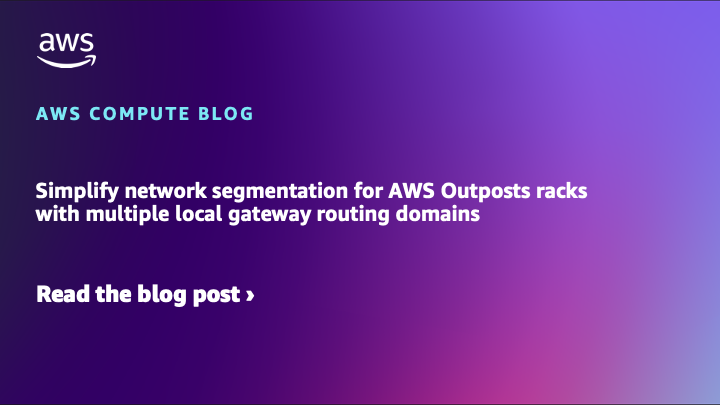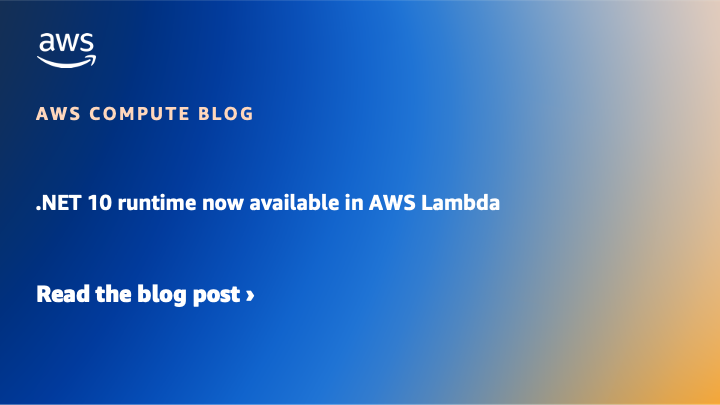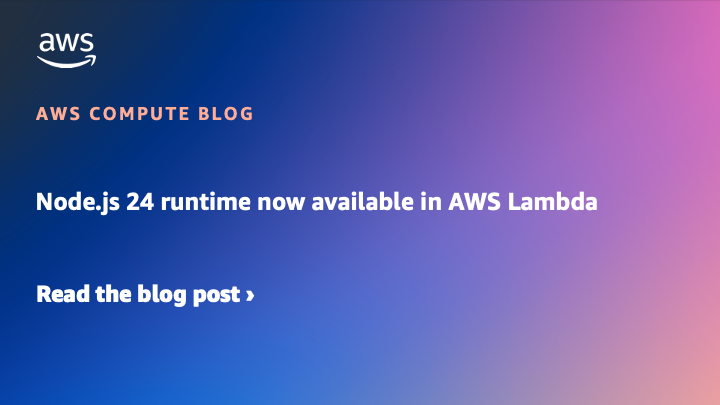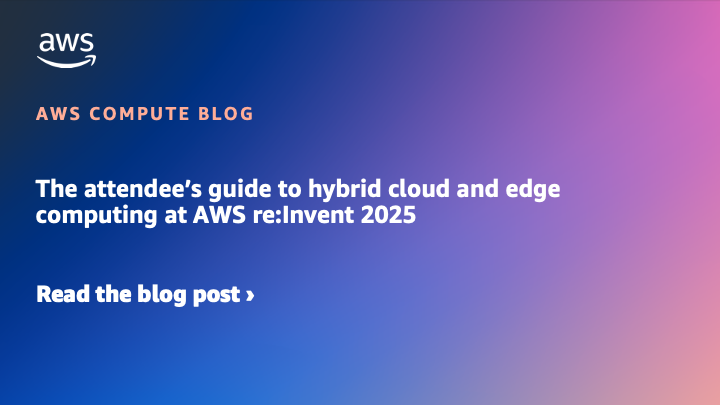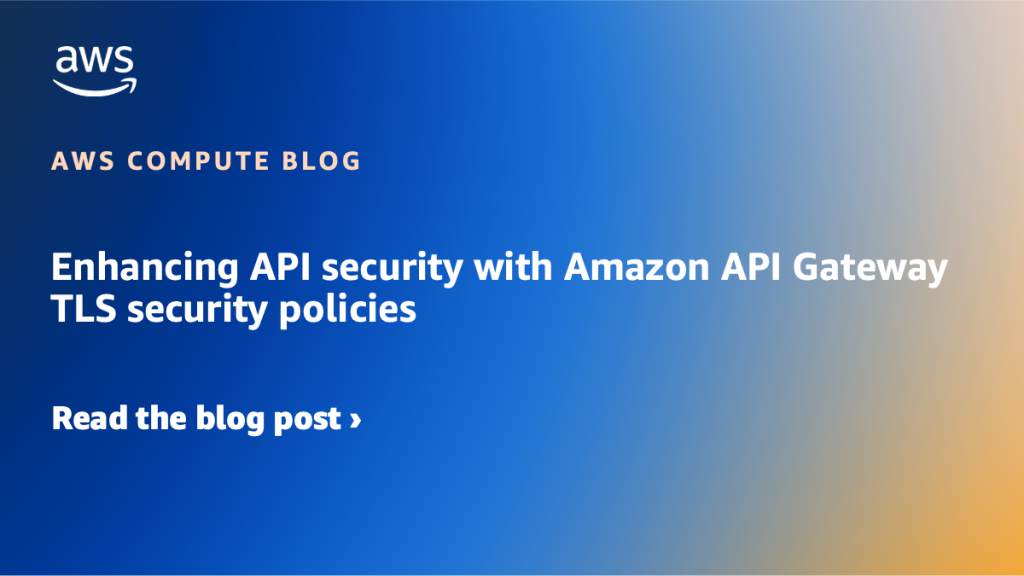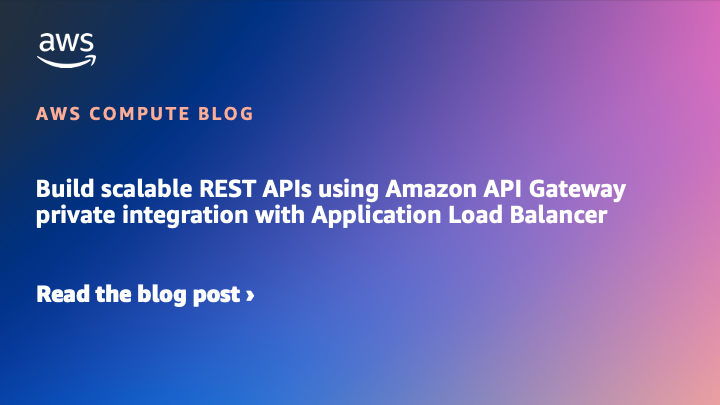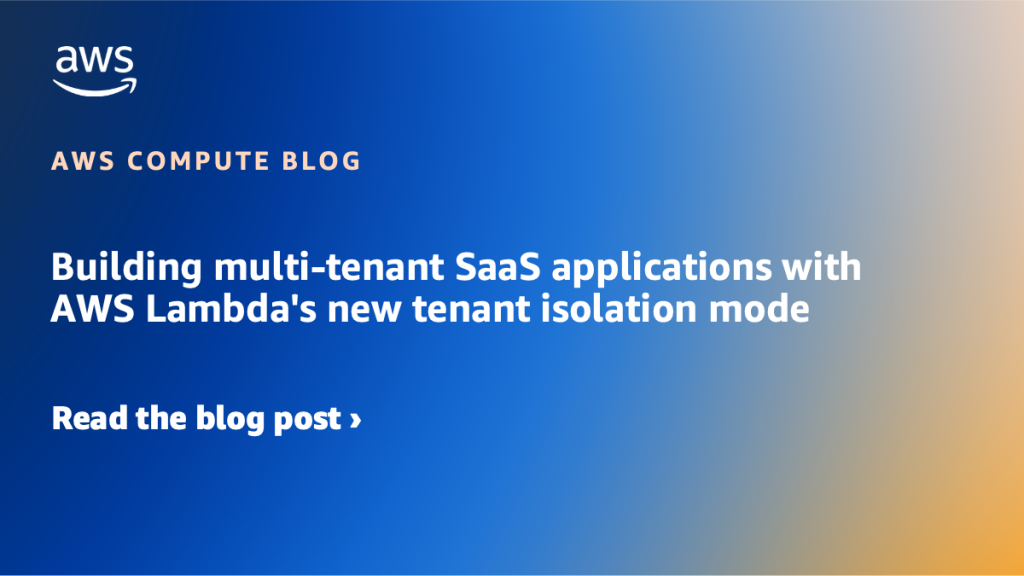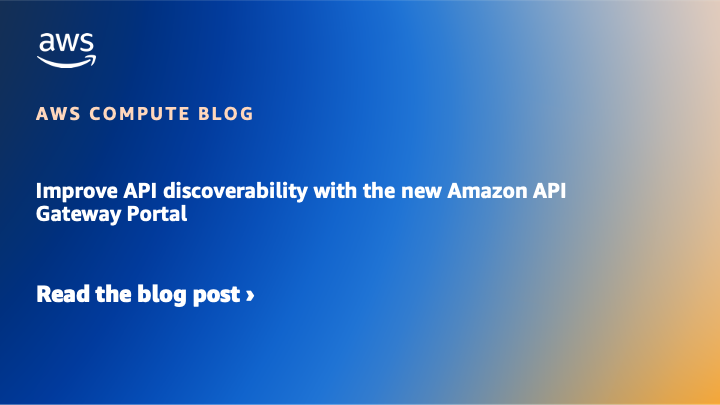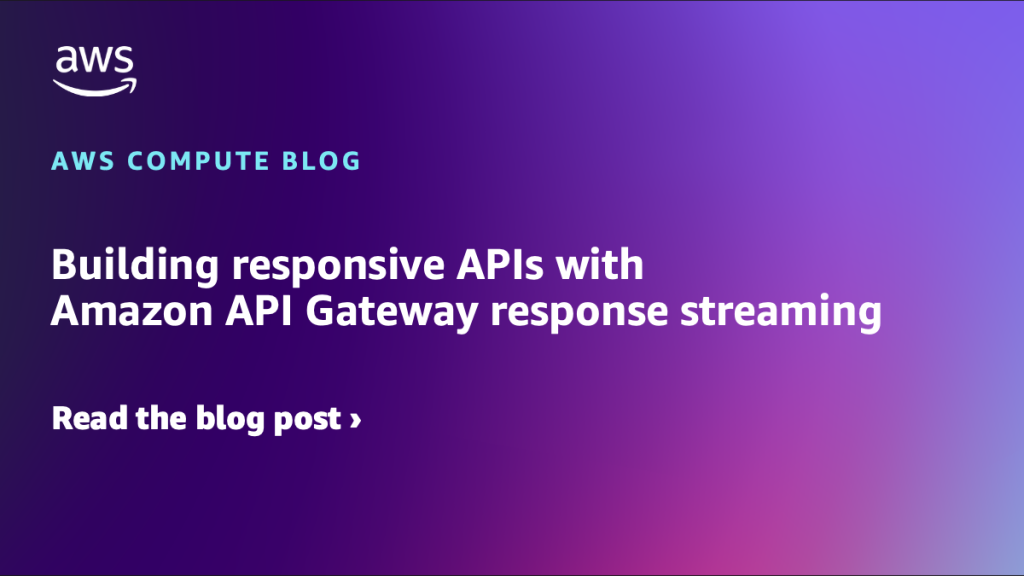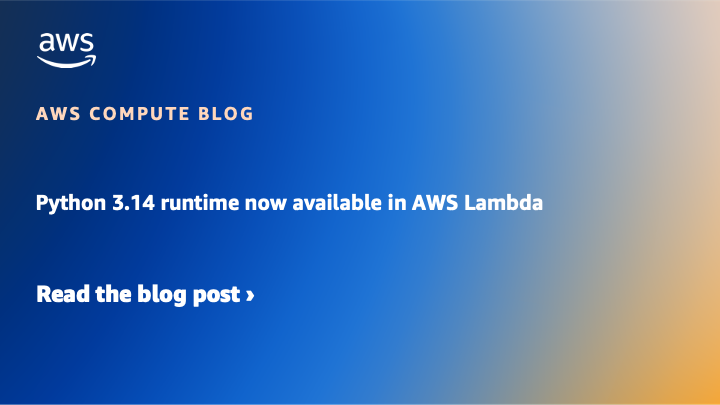AWS Compute Blog
Category: Announcements
Simplify network segmentation for AWS Outposts racks with multiple local gateway routing domains
AWS now supports multiple local gateway (LGW) routing domains on AWS Outposts racks to simplify network segmentation. Network segmentation is the practice of splitting a computer network into isolated subnetworks, or network segments. This reduces the attack surface so that if a host on one network segment is compromised, the hosts on the other network segments are not affected. Many customers in regulated industries such as manufacturing, health care and life sciences, banking, and others implement network segmentation as part of their on-premises network security standards to reduce the impact of a breach and help address compliance requirements.
.NET 10 runtime now available in AWS Lambda
Amazon Web Services (AWS) Lambda now supports .NET 10 as both a managed runtime and base container image. .NET is a popular language for building serverless applications. Developers can now use the new features and enhancements in .NET when creating serverless applications on Lambda. This includes support for file-based apps to streamline your projects by implementing functions using just a single file.
Node.js 24 runtime now available in AWS Lambda
You can now develop AWS Lambda functions using Node.js 24, either as a managed runtime or using the container base image. Node.js 24 is in active LTS status and ready for production use. It is expected to be supported with security patches and bugfixes until April 2028. The Lambda runtime for Node.js 24 includes a new implementation of the […]
The attendee’s guide to hybrid cloud and edge computing at AWS re:Invent 2025
AWS re:Invent 2025 returns to Las Vegas, Nevada, from December 1–5, 2025. This year, we’re offering a comprehensive lineup of sessions and booth activities to help you build resilient, performant, and scalable applications wherever you need them—in the cloud, on premises, or at the edge.
Enhancing API security with Amazon API Gateway TLS security policies
In this post, you will learn how the new Amazon API Gateway’s enhanced TLS security policies help you meet standards such as PCI DSS, Open Banking, and FIPS, while strengthening how your APIs handle TLS negotiation. This new capability increases your security posture without adding operational complexity, and provides you with a single, consistent way to standardize TLS configuration across your API Gateway infrastructure.
Build scalable REST APIs using Amazon API Gateway private integration with Application Load Balancer
Today, we announced Amazon API Gateway REST API’s support for private integration with Application Load Balancers (ALBs). You can use this new capability to securely expose your VPC-based applications through your REST APIs without exposing your ALBs to the public internet.
Building multi-tenant SaaS applications with AWS Lambda’s new tenant isolation mode
Today, AWS is announcing tenant isolation for AWS Lambda, enabling you to process function invocations in separate execution environments for each end-user or tenant invoking your Lambda function. This capability simplifies building secure multi-tenant SaaS applications by managing tenant-level compute environment isolation and request routing, allowing you to focus on core business logic rather than implementing tenant-aware compute environment isolation.
Improve API discoverability with the new Amazon API Gateway Portal
In this post, we will show how you can use the new portal feature to create customizable portals with enhanced security features in minutes, with APIs from multiple accounts, without managing any infrastructure.
Building responsive APIs with Amazon API Gateway response streaming
Today, AWS announced support for response streaming in Amazon API Gateway to significantly improve the responsiveness of your REST APIs by progressively streaming response payloads back to the client. With this new capability, you can use streamed responses to enhance user experience when building LLM-driven applications (such as AI agents and chatbots), improve time-to-first-byte (TTFB) performance for web and mobile applications, stream large files, and perform long-running operations while reporting incremental progress using protocols such as server-sent events (SSE).
Python 3.14 runtime now available in AWS Lambda
AWS Lambda now supports Python 3.14 as both a managed runtime and container base image. Python is a popular language for building serverless applications. Developers can now take advantage of new features and enhancements when creating serverless applications on Lambda.
